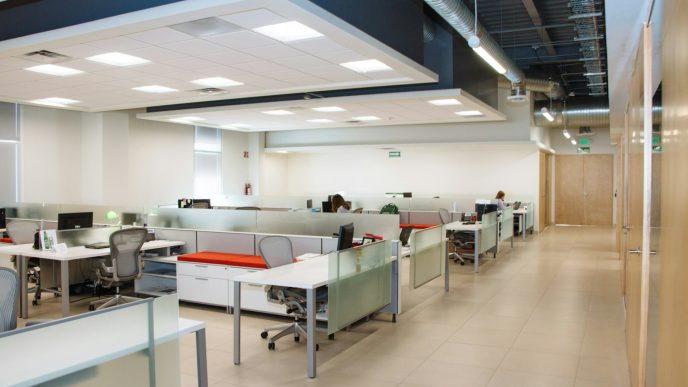The Global Appeal of International Schools
In today’s interconnected world, the demand for high-quality education with a global perspective is on the rise. More parents are considering international schools as an option for their children, recognising that such institutions provide an environment that fosters not only academic excellence but also cultural awareness and global citizenship. For expatriate families, international schools offer a sense of continuity amidst changing countries and cultures, while local families often see them as a gateway to world-class education that prepares their children for a global future.
Finding the best international schools can be a daunting task, as there are numerous factors to consider. What makes an international school “the best”? Is it the curriculum, facilities, or the ethos of the school? Parents must navigate these questions while also considering their child’s needs and their own educational philosophy. A helpful place to begin your research is by consulting resources like World Schools, which provides comprehensive information on schools worldwide to help guide your decision.
In this blog, we’ll explore what makes international schools so appealing, the key factors parents should consider, and how choosing the right school can set your child up for a successful future.
Understanding the Benefits of an International Education
An international education offers several distinct advantages that set it apart from traditional schooling. Firstly, it provides a global perspective. The curriculum, teaching style, and overall school environment are geared towards fostering a broad worldview. Students are exposed to different cultures, ideas, and languages, which equips them with the ability to think critically, understand diversity, and adapt to a rapidly changing world.
Secondly, international schools often provide a rigorous academic environment that encourages intellectual curiosity, independence, and lifelong learning. Class sizes tend to be smaller, allowing for more personalised attention and fostering close relationships between students and teachers. This approach not only enhances academic outcomes but also nurtures the personal and social development of each student.
What Defines the Best International Schools?
The term “best” can be subjective and depends greatly on what a family values most in an educational setting. However, there are certain hallmarks that define high-quality international schools globally.
Firstly, top schools maintain high academic standards, offering globally recognised curricula such as the International Baccalaureate (IB), Cambridge International Examinations (CIE), or Advanced Placement (AP). They also have qualified, experienced teachers who are passionate about delivering an engaging, student-centered learning experience.
Another defining feature of the best international schools is their commitment to fostering cultural diversity. These schools often have a diverse student body representing numerous nationalities, allowing students to interact with peers from different backgrounds and learn in a multicultural environment.
The Role of Curriculum in International Schools
When selecting an international school, the curriculum is one of the most crucial factors to consider. The curriculum shapes the learning approach, content focus, and educational philosophy of the school. Parents should choose a curriculum that aligns with their child’s learning style and long-term educational goals.
For instance, the International Baccalaureate (IB) is known for its inquiry-based approach and its emphasis on developing well-rounded learners. It’s designed to cultivate independent thinking, social responsibility, and a global outlook. On the other hand, the British National Curriculum (often leading to the IGCSE and A-Level qualifications) is more traditional and content-focused, offering a structured pathway to university entry.
Understanding the pros and cons of each curriculum can help you make an informed choice that aligns with your child’s needs and aspirations.
How Location Influences Your School Choice
The location of an international school can significantly influence your decision. Factors like safety, accessibility, climate, and the local community play a role in determining the right fit for your family. For some parents, finding a school that’s close to home or work may be a priority for convenience and ensuring a good work-life balance.
For others, moving to a country renowned for its high-quality education, such as Switzerland, Singapore, or the United Kingdom, may be a deliberate choice to provide their child with an exceptional schooling experience. Each country or region has its own unique educational landscape, and choosing the right location often depends on your family’s lifestyle, budget, and long-term goals.
Language and Cultural Diversity in International Schools
Language plays a pivotal role in shaping a child’s educational experience, and international schools often have unique offerings in this regard. Many of these schools are bilingual or trilingual, and they may offer a variety of language programmes to ensure students gain fluency in multiple languages.
Additionally, the cultural diversity within an international school adds immense value to a child’s education. Being surrounded by classmates from different nationalities and cultures encourages students to develop cross-cultural understanding, respect, and open-mindedness. It creates an inclusive and global-minded environment that helps prepare them for success in an increasingly interconnected world.
Reviewing School Accreditations and Academic Standards
Before finalising your decision, it’s essential to review the accreditations and academic standards of each potential school. Recognised international school accreditations – such as those from the Council of International Schools (CIS), the New England Association of Schools and Colleges (NEASC), or the Western Association of Schools and Colleges (WASC) – are indicators of quality, signifying that the school meets global benchmarks for education.
Accreditations reflect the school’s commitment to continuous improvement, high-quality teaching, and student wellbeing. When you review these standards, you gain assurance that your child is attending a school with a proven track record of excellence.
Facilities, Extracurriculars, and Holistic Development
While academics are crucial, a well-rounded education extends beyond the classroom. The best international schools provide access to state-of-the-art facilities and a broad range of extracurricular activities, including sports, music, drama, and the arts. These opportunities for holistic development help students develop life skills, discover their passions, and build well-rounded characters.
When evaluating schools, consider what extracurriculars they offer and how well they integrate these activities into the broader educational experience. The facilities – such as libraries, sports complexes, science labs, and art studios – are also a reflection of the school’s dedication to providing a comprehensive and enriching environment for learning.
The Importance of Strong Pastoral Care and Student Wellbeing
International schools often place a strong emphasis on pastoral care, ensuring that each student receives the emotional and social support they need to thrive. The transition to a new school, especially in an unfamiliar country, can be challenging for students and families. A strong support network can make a significant difference in helping students adapt and flourish in their new environment.
Look for schools with dedicated counsellors, student welfare programmes, and a proactive approach to mental health and wellbeing. This kind of support can greatly enhance your child’s school experience and contribute to their overall happiness and development.
Selecting a School That Aligns With Your Family’s Values
Each family has unique values, traditions, and educational philosophies. It’s important to find a school that aligns with these values and resonates with your vision for your child’s upbringing. Consider whether you want a school with a particular religious affiliation, a specific approach to discipline, or a philosophy that prioritises creativity and independent thinking.
Selecting a school that shares your values helps ensure that your child’s educational journey is consistent with the principles and beliefs that are important to your family.
A Look at Boarding Options in International Schools
Boarding schools are a popular choice for families seeking a more immersive educational experience. Many international schools offer full-time or weekly boarding options, providing a home-away-from-home environment for students. Boarding fosters independence, self-discipline, and a close-knit community, where students develop lifelong friendships and gain skills that are invaluable for their personal growth.
If you’re considering boarding for your child, take into account the school’s facilities, pastoral care, and overall ethos to ensure it provides a nurturing and supportive environment.
World Schools: A Resource for Finding the Right Fit
The process of finding the right international school can feel overwhelming, given the multitude of options available. World Schools is an invaluable resource for parents, offering comprehensive information and reviews of international schools across the globe. Their platform provides details on curricula, facilities, and unique school offerings, helping you make an informed choice based on your child’s needs and your family’s preferences.
Using resources like this can streamline your search and help you focus on the schools that align with your priorities and values.
Empowering Your Child’s Future with the Right School Choice
Choosing an international school is a significant decision that will shape your child’s educational experience and future opportunities. A school that nurtures their academic abilities, fosters personal growth, and provides a global perspective will empower them to thrive in a diverse and rapidly changing world.
As a parent, the journey to finding the right school is about more than just academics – it’s about choosing an environment where your child can grow, develop confidence, and be inspired to achieve their full potential. It’s an adventure, a chance to explore the world’s best schools, and ultimately, to help your child embark on a transformative journey towards a bright and promising future.












